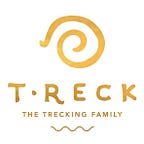Censorship: Seeing the Chains Restricting Open Communication
Do you feel like you can speak freely on social media?
I don’t feel free to speak my mind. I know I deserve to come under scrutiny for such a claim, living in America, as a white man, with so much freedom compared to many. But this feeling has grown over the past year. And been affirmed by several recent, highly public actions. It’s left me and many others feeling that all free thinking people are in danger of censorship.
Sure, I can say what I want around my wife and friends. But only certain friends. And that number is shrinking. In 2020, I learned a lot about what not to say to certain people. The risk of offending someone and evoking a self-righteous anger is greater than ever and, more and more often, is ending relationships.
Then there’s social media. At work, I’ve been told I can be fired for posting the wrong thing. What’s the wrong thing is subject to interpretation. Or my account could be suspended. Or simply banished to obscurity using their algorithms. Or I could be discredited out of hireability. No matter the consequences, I’ve internalized this pressure of verbal obedience.
I know there are certain things not to say out of good taste and respect. I’m not talking about vulgarity or threats or insults. I’m talking about questioning the response to the coronavirus. Asking questions about the fairness of the election process and results. Pointing out the absence of coverage and accountability for the financial partners of Jeffrey Epstein. Saying there are only two genders. Expressing concern over the erosion of women’s protection in sports and bathrooms. Talking about the monopolies of tech companies and the collusion of government regulators. Wanting enforcement of immigration laws. Or talking about the possibility that China covered up the laboratory origins of the Coronavirus. And worse.
I’ve internalized this collective effort to quiet dissent, alongside mask mandates and endless lockdowns, completing the silencing act of cancellation for thought crimes and outbursts of skepticism. I walk around my usual public places feeling invisible. Not looking anyone in the eye. Having to remind myself to say hello to cashiers. Crossing the street before meeting someone on the sidewalk.
I feel censored in body and mind. I’m told it’s for the greater good. It’s saving lives. But at what cost?
The lockdown story seems to grow thinner with every video that’s taken down. With every post that’s shaded out with disclaimers. With every account that’s suspended and deactivated — the internet titans have conspired to completely silence the former president of the United States. And with every app that’s deplatformed. All these acts of censorship further convince me that the lockdown and mask-shaming, cancel culture crowd cannot articulate their positions. They lash out in anger, clinging to a blind faith in the gatekeepers of science and ideology, pleading for their tech overlords to silence those they cannot persuade. Forgetting that science is the act of questioning everything.
This censorship is causing me to mistrust everything.
I’m not arguing for any position. I don’t want to choose sides. But when I’m forced to choose between freedom of speech and banning controversial speech, there’s only one choice I can make.
I don’t buy the argument that these tech companies are private platforms. They’ve grown beyond that. And I can’t support anyone who’s only answer to well-intentioned questions is personal attacks aimed at silencing dissent.
The accepted narrative of what happened in 2020 is not honest. The ongoing Coronavirus lockdown conversation is distorted by misinformation, omission, out right censorship, and an unwillingness to criticize the Biden administration.
The only answer to censorship is the opposite: open, well-articulated counterpoints of better speech. We need to give voice to more diverse opinions. We can’t keep people out of the discussion. We need to bring everyone into the conversation to solve our problems together. There can be no deplorables we discard. No people we condemn as irredeemable. We need to provide resources to help our society heal and grow through connection. We need to help all people honestly learn about and recover from the pandemic and its response. We need diverse scientific data and an inclusive decision-making process.
We have failed to educate generations of Americans about the proper consumption of news and media. And now the voices that are attempting to bring us back from the edge of centrally coordinated programming are being censored. It’s time to admit that we have failed. Our society has failed to produce adults capable of debating and defining facts and the truth.
We need to admit that we have failed. We need to agree that it’s time to take a new approach to education and learning and information and its distribution — luckily, many of us have already started. It’s time for us to start building a better society. And I think we should start with the internet.
The good and bad changes wrought by the internet have come from the democratizing of information and the decentralization of content creation. The problem is content distribution is still centralized and, more importantly, we are living through the death of the expert.
